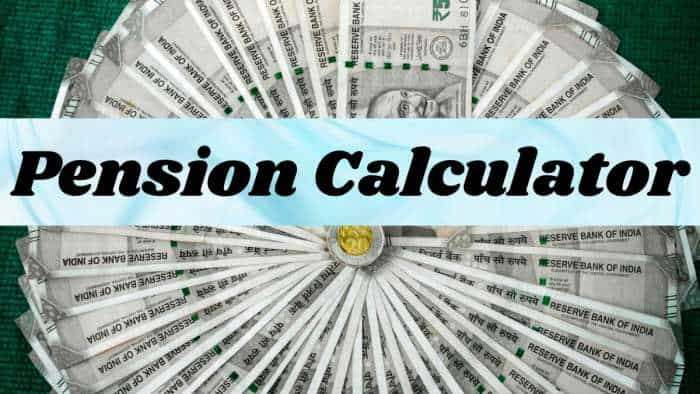BOJ maintains ultralow rates at policy meeting
BOJ interest rate decision 2023: The Bank of Japan maintained ultra-easy monetary policy on Friday despite stronger-than-expected inflation, signalling it will remain a dovish outlier among global central banks and focus on supporting a fragile economic recovery.
)
BOJ interest rate decision 2023: The Bank of Japan maintained ultra-easy monetary policy on Friday despite stronger-than-expected inflation, signalling it will remain a dovish outlier among global central banks and focus on supporting a fragile economic recovery. The central bank also kept intact its view that inflation will slow later this year and a pledge to "patiently" sustain massive stimulus, reinforcing Governor Kazuo Ueda's recent message that it will be in no rush to phase out stimulus.
The BOJ's decision contrasts sharply with that of the European Central Bank, which raised borrowing costs to a 22-year high on Thursday and signalled the likelihood of further hikes. Also this week, the U.S. Federal Reserve on Wednesday signalled it was not yet done with its fight against inflation.
"Despite upside surprises on the growth and inflation fronts, we believe the BOJ will maintain the status quo for another year or so to assess whether the economy is on track to achieving 2 per cent inflation within Governor Ueda's five-year term," said Shigeto Nagai, head of Japan Economics at Oxford Economics.
As widely expected, the BOJ maintained its -0.1 per cent short-term interest rate target and a 0 per cent cap on the 10-year bond yield set under its yield curve control (YCC) policy.
"Uncertainty regarding Japan's economy is very high," the BOJ said in a statement announcing the decision. The bank added it expected core consumer inflation to slow by October.
The yen fell 0.3 per cent against the dollar to 140.72 and tumbled to a fresh 15-year low of 153.925 against the euro after the announcement. Japan's benchmark 10-year government bond yield fell to 0.4 per cent after the decision, well off the implicit 0.5 per cent cap set for the maturity.
Markets are focusing on Ueda's post-meeting news conference for hints on how soon the BOJ could tweak YCC and his views on the yen's renewed declines, which work to push up import costs.
"The BOJ is not in a hurry to tweak policy on the view the side-effects of YCC aren't so large," said Izuru Kato, chief economist at Totan Research. "But it may be forced to act if the yen weakens further and drives up import costs, angering the public. The trigger for a YCC shift could be a sharp yen fall." Already, the yen's renewed decline has drawn a verbal warning from Finance Minister Shunichi Suzuki, who told reporters on Friday excessive currency volatility was undesirable.
Core consumer inflation hit 3.4 per cent in April, staying above the BOJ's target for over a year, keeping alive market expectations the bank will phase out YCC sometime this year. However, Japan's bitter memories of its decades-long battle with deflation may also keep Ueda from pulling the trigger hastily, even as inflation and wages show increasing sign of accelerating.
An upgrade to the BOJ's inflation forecast in a quarterly review in July is seen as a done-deal, though central bank officials have said a rise in inflation alone won't automatically trigger a policy shift. Ueda has said solid, sustained wage growth must accompany rising inflation for the BOJ to contemplate a policy tweak.
Japan's economy is making a delayed recovery from the pandemic and expanded an annualised 2.7 per cent in the first quarter, with solid corporate and household spending moderating the blow from soft exports.
Catch latest minute-by-minute stock market updates here. For all other news related to business, politics, tech, sports and auto, visit Zeebiz.com.
Get Latest Business News, Stock Market Updates and Videos; Check your tax outgo through Income Tax Calculator and save money through our Personal Finance coverage. Check Business Breaking News Live on Zee Business Twitter and Facebook. Subscribe on YouTube.
RECOMMENDED STORIES

'Bengaluru, absolute traffic hell...: City's congestion worsens as HSR Layout flyover shuts for metro work, netizens irked

Gratuity Calculation: What will be your gratuity on Rs 40,000 last-drawn basic salary and 5.2 years of service?

SBI 3-year FD vs SBI 5-year FD: Know which fixed deposit scheme can give you higher returns on Rs 2 lakh, Rs 4 lakh, Rs 6 lakh investments

8th Pay Commission: Can basic pension cross Rs 3 lakh mark in new pay commission? See calculations to know its possibility?

SBI 444-day FD vs Central Bank of India 444-day FD: Which can provide higher maturity on Rs 5,00,000, Rs 7,00,000 & Rs 10,00,000 deposits?

UPS vs NPS vs OPS: Last drawn basic pay Rs 100,000; pensionable service of 30 years; what can be your monthly pension in each?

Monthly Pension Calculations: Is your basic pension Rs 25,000, Rs 35,000, or Rs 50,000? Know what can be your total pension as per latest DR rates
09:44 AM IST









 BOJ chief vows to support economy with monetary stimulus
BOJ chief vows to support economy with monetary stimulus No surprise, yen to remain weak: Experts after BOJ ends negative interest rate policy
No surprise, yen to remain weak: Experts after BOJ ends negative interest rate policy Japan core machinery orders fall more than expected, fuel economic uncertainty
Japan core machinery orders fall more than expected, fuel economic uncertainty BOJ's growing confidence in prices, wages shifts focus to March meeting
BOJ's growing confidence in prices, wages shifts focus to March meeting Japan's inflation beats forecasts, end of negative rates in sight
Japan's inflation beats forecasts, end of negative rates in sight